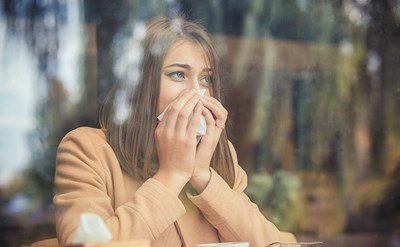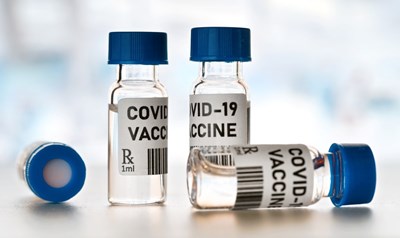The beginning of spring also marks the beginning of allergy season. Avoid anxiety and seek appropriate medical attention by knowing the difference allergies and COVID-19.
Allergies involve an overreaction of the body’s immune system, which is responsible for fighting infections, whereas COVID-19 is a contagious virus that can cause severe illness or even death. If you're experiencing symptoms, consult the infographic below to help recognize the cause.
A quick quiz can help you determine whether you have COVID-19 or seasonal allergies:
Do you have a fever? Seasonal allergies do not typically include a fever. It is possible to get COVID without a fever. But, when the body temperature is unusually high, it’s often a sign of illness rather than allergy.
Do you typically have allergies? It’s understandable to be concerned about COVID, but if the season reliably brings familiar symptoms like an itchy or runny nose, sneezing, or watery eyes, it’s likely allergies flaring up again. COVID symptoms can overlap but often include additional signs of concern. The duration of symptoms is important, too. COVID symptoms last about a week but could have longer-term effects, while allergies tend to stick around for months.
Are your symptoms more than coughing or sneezing? Some of the most common COVID symptoms are consistent with allergies or a cold and can include a sore throat or runny nose. A likely sign of COVID is the addition of one or more symptoms, including body aches, fatigue, nausea, stomach problems or diarrhea, or loss of taste or smell.
People with COVID may feel short of breath or have difficulty breathing, but seasonal allergies don’t usually cause breathing issues unless there’s an underlying respiratory condition, such as asthma, according to the Centers for Disease Control and Prevention (CDC).
Are you taking avoidable risks? Even without symptoms, it is helpful to continue to wear a mask, social distance, and get vaccinated to decrease the chances of getting sick and slow the spread of COVID.
Stay home if you are sick, whether it is with COVID or another illness and contact a primary care physician when symptoms are mild to discuss treatment options. It's important to know when to go to the emergency department or call 911 when symptoms indicate a medical emergency, such as trouble breathing or shortness of breath, when illness become severe, or there is a high risk of illness or complications due to age or preexisting conditions.
To stay safe, visit a testing site or take an at-home COVID test when symptoms start. Free at-home tests are available to order from the government on COVID.gov or they can be purchased at retailers or pharmacies.
 American College of Emergency Physicians
American College of Emergency Physicians







